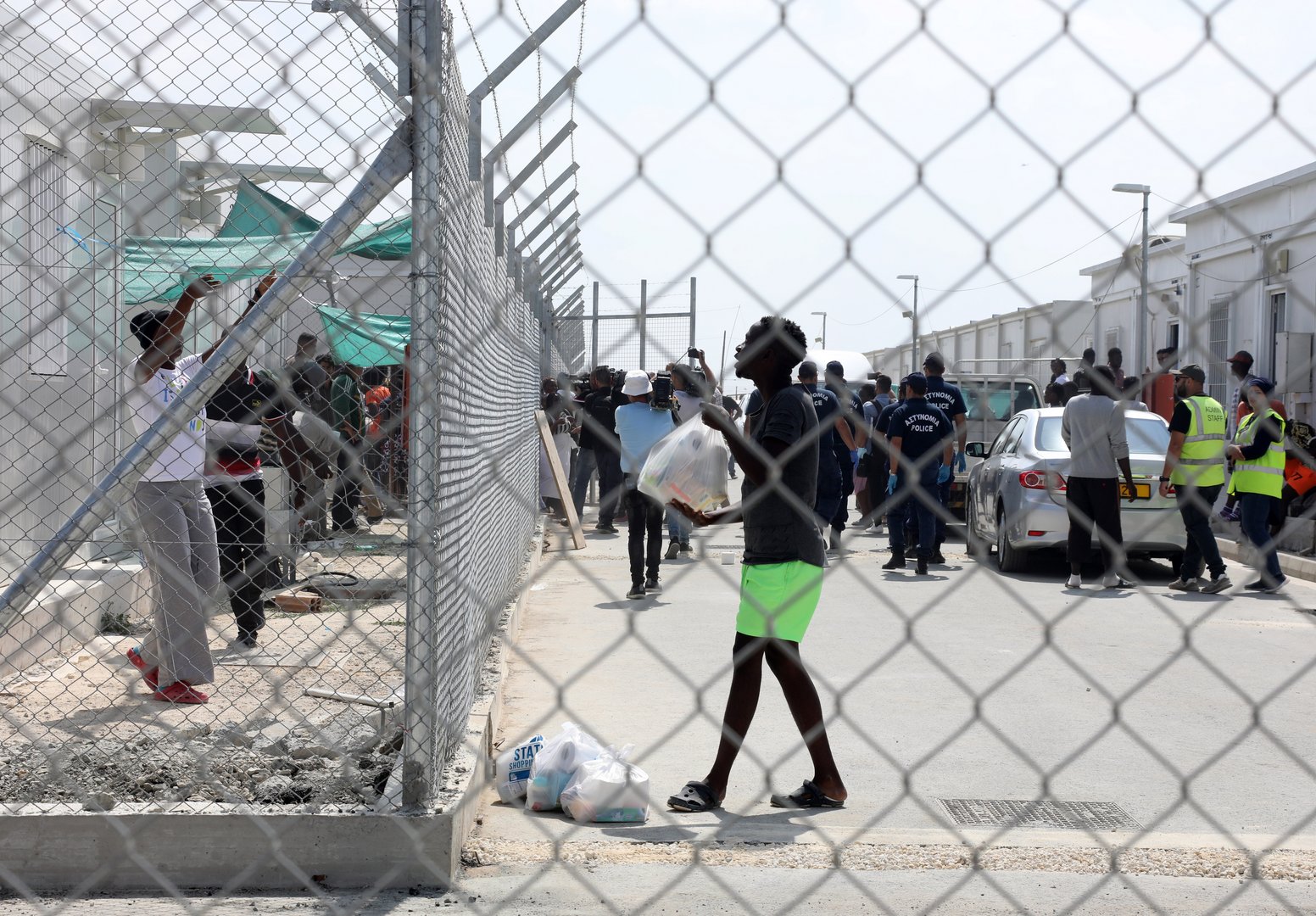There has been an increase in Syrian asylum application, the interior ministry said on Thursday, while noting that the cases are difficult to deal with as the people concerned cannot be returned home due the fact their country is considered unsafe.
Meanwhile, the ministry said that for November there has been a huge drop in applications from Nigeria, Democratic Republic of the Congo, and Cameroon, in comparison with the same month in 2022.
New applications from March to November this year reached 9,091, while in 2022 new applications had reached 17,065.
This was a drop of over 50 per cent (53 per cent).
In total for 2022, some 21,565 applications were filed for the year, while so far this year, with December being excluded, applications came to 10,589, a drop of 49 per cent.
Regarding countries of origin, according to the data, in November 2023, 1,125 asylum seekers were from Syria, compared to 318 in the same month last year, and 39 were from Nigeria, compared with 245 in November last year. The same pattern holds for applicants from DRC, with 29 asylum applications this November compared to 234 last year, and Cameroon, with 11 asylum applicants this year and 116 in November 2022.
“Based on the above figures, there has been a significant reduction in the numbers of Africans arriving in Cyprus over the past year, as a result of the measures taken to make the problem manageable,” the ministry said.
At the same time, there was an increase in applications from Syrians, who arrive mainly by sea “and their management is difficult, given that their country is an unsafe area, and they cannot return by any mechanism (voluntary return, deportations, etc.)”.
Departures were 11,040 so far this year.
“For the first time in the history of migration in our country, the balance of departures-arrivals of irregular migrants is positive, with the rate of returns over arrivals reaching 105 per cent,” the ministry said.
According to the data, in 2022, some 17,438 arrivals were recorded – 937 by sea and 16,501 through the buffer zone – while this year, up to December 15, there were 10,475 arrivals (3,889 by sea and 6,586 through the buffer zone).
In relation to the countries of origin of arrivals, the ministry said that for 2022, the top ten countries in terms of arrivals through the buffer zone were Syria, Congo, Nigeria, Pakistan, Afghanistan, Bangladesh, Cameroon, Somalia, Iran, and Iraq. Similarly, for 2023, the top ten countries in terms of arrivals through the buffer zone were: Syria, Nigeria, Cameroon, Congo, Iraq, Somalia, Pakistan, Bangladesh, Iran, and Liberia.
“The data shows that a 68 per cent reduction in arrivals from African countries has been achieved compared to 2022 and at the same time a 34 per cent reduction in Syrian arrivals,” it added.
In terms of arrivals by sea in 2022 top counties of origins were Syria and Palestine, while in 2023 it was Syria, Palestine, Lebanon and Morocco with most arrivals being from Syria, the ministry said.
It is also reported that in the March-November 2023 period, a total of 16,005 decisions were issued, including rejection decisions, decisions on subsidiary protection and stay and decisions granting refugee status. Of the 16,005 decisions, 11,579 were refusals, it said. It added that, through a series of measures implemented, the time needed to complete the examination of applications was reduced from 9-21 months to 1 to 3 months.
The ministry added that in 2023, there have been 7,200 voluntary returns so far, compared to 5,100 last year (an increase of almost 71 per cent). Overall, it said, departures, including voluntary returns, deportations, and relocations, reached 11,040 for the January-November 2023 period, compared with 5,900 in the same period in 2022.
In addition, in the period March to December 15, a total of 1,680 relocations to other EU member states took place through the relocation mechanism. Germany is the first country in terms of the number of relocations from Cyprus, followed by France, according to the ministry’s statement.
The ministry said that the 2023 annual statistics regarding migration will be made available in January.







Click here to change your cookie preferences